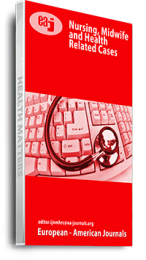This study aimed to assess work-related factors influencing burnout among nurses in selected hospitals in Abeokuta, Ogun State. Using a Cross-Sectional Descriptive survey, the research examined the relationship between work-related factors and burnout, with specific objectives to determine the level of burnout among nurses. The findings revealed that factors such as higher nurse-patient ratios, working without off days, increased workload, chronic lack of sleep, and an inconducive working environment significantly contribute to burnout. Notably, nurse-patient ratios and working extra hours without rest ranked highest in influencing extreme tiredness and burnout. The study employed Pearson Product Moment Correlation to establish a significant relationship between work-related factors and burnout among nurses. The results demonstrated a strong correlation (r=0.773, p<0.05), emphasizing the crucial link between workplace conditions and nurse burnout. The prevalence of burnout among nurses was substantial, highlighting challenges in emotional exhaustion, depersonalization, and reduced personal accomplishment. The study recommends interventions, including optimal nurse-patient ratios, policies promoting work-life balance, fatigue management programs, and improvements in the working environment. These recommendations aim to address specific stressors and enhance overall well-being among nurses, emphasizing the importance of organizational policies and practices in mitigating
Keywords: Burnout, Influence, Nurses, Work Related Factors

